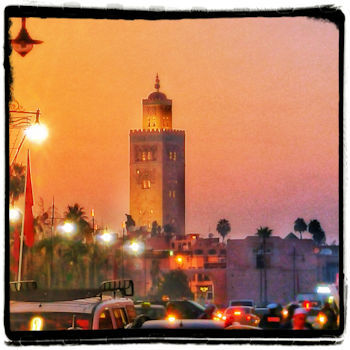Rumi — Keep Walking

This is post 3 of 3 in the series “Rumi Poems”
Rumi’s Poetry as a Way Inside
Keep Walking — a reminder that the path through life has no destination (or rather, that destination is death) so the wise person walks with both determination and joy.

Psst! Hey!
** Want more great writing designed to help YOU to shift your behaviour?
** Want to learn how to find, build or deepen your principal relationship?
** Want to know more about Zen living and being?
We’re now in Montreal, or will be today! Soon, back to Ontario.
Many moons ago, I wrote a series of articles featuring some of Rumi’s poems. I think it’s time for a revisit.
Jelaluddin Rumi lived during the 13th century. He was a theologian with his own divinity school. At age 37, through a relationship with a dervish monk, Shams, Rumi began to transform his being, and in the process, to write some of the most beautiful mystical poetry ever written. For the next several weeks, we’ll reflect on some of his poems.
I’m using a translation from the book The Illuminated Rumi.
Keep Walking
Keep walking, though there’s no place to get to.
Don’t try to see through the distances.
That’s not for human beings.
Move within, but don’t move the way fear makes you move.
Today, like every other day, we wake up empty and frightened.
Don’t open the door to the study and begin reading.
Take down a musical instrument.
Let the beauty we love be what we do.
There are hundreds of ways to kneel and kiss the ground.
Rumi
In typical Rumi fashion, we’re jolted by his concept of living “destination-free.”
So, Marrakech is an interesting place. Not much different from what I imagined, but worlds away from my “normal.” Yesterday, we headed out for a light supper, (no such thing here…) and needed to hit the ATM. We for some reason shifted into “Canada Walking” mode.
Twice, someone came up behind us. The first guy said, “Can I help you find something?” We said “no” and kept going. The next guy said something to the effect of “You’re in such a hurry. Are you lost?” We again said “no,” and declined his offer to take us somewhere.
We also kinda slowed down
 A photo by the lovely Darbella. Notice the traffic at bottom!
A photo by the lovely Darbella. Notice the traffic at bottom!What’s weird is that Marrakech, especially in the old part, is one bustling place. I even stomped out of a market — an enclosed building — when three motorcycles roared through. But with us hustling, the impression was that anyone walking that fast had to be lost.
Which is not far from wrong, at least as things go in the West. Reminds me of the old saying, “The hurrieder I go, the behinder I get.”
Rumi wrote, “Keep walking, though there’s no place to get to.” The above little story is not really about hustle and bustle. It’s about being present — about noticing what’s going on right in front of you, and responding to that.
Responding to real life — to the moment — to “here, now.”
There is something to be gained by slowing the pace down — including the pace of our thoughts. Meditation teaches us that our endless meandering down the streams of “past” and “future” lead only to distancing ourselves from reality. And really, what’s the rush?”
Back to the point Rumi was making. If you think about it, walking (or driving, or living) without endlessly focussing on the destination means that your mind could conceivably be clear, and you could actually notice where you are. In other words, by focusing on “now, here” — you’re real, as opposed to thinking about the destination, which isn’t real until you get there!
Most people, when asked, wish to be “any place but here!!” And yet, here is all there is.
Rumi counsels us to “Move within, but don’t move the way fear makes you move,” This is a somewhat directionless or goal-less entry within. Which is not the norm for many of us when we spend time inside our heads.
Mostly, when we’re in there, we end up doing a number on ourselves. We’re drawn that way, as Rumi says, by fear. Fear of failure. Fear of success. Fear of ourselves. Fear of others. Fear, especially, of change. The fear causes us to push the moment, the present, the “now” — away. Fear causes us to project ourselves, mentally, into the land of “dire consequences.”
Darbella and I took a 14-hour trip to a Kasbah and back. As it was on the other side of the Atlas Mountains, the trip was switch-back city. On the way home, I was getting a bit cranky with the 5 hour segment, the switch-backs, the dark, and the dust, which is still coming out of my nose 48 hours later. (Sorry!



